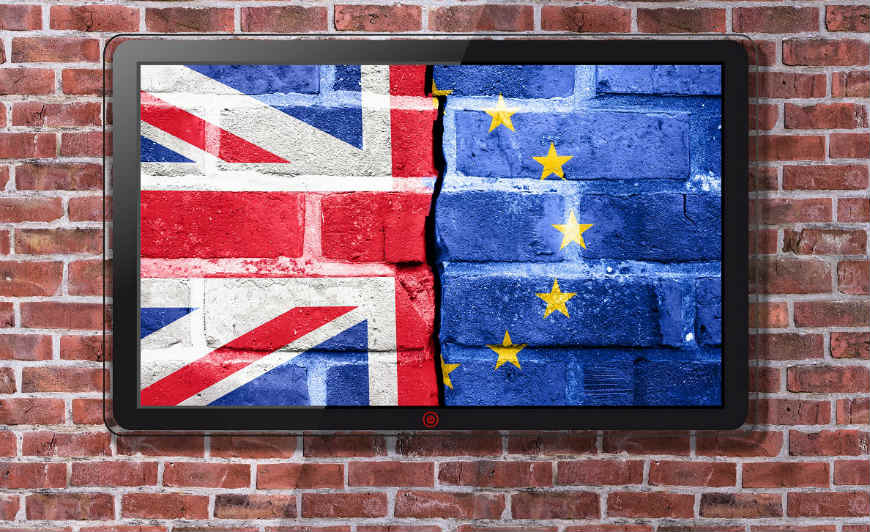Get it here!
As Europe moves inexorably towards midnight on the 29th of March 2019 – when the UK will effectively leave the European Union - each sector of industry in Europe is anxiously trying to evaluate and anticipate the consequences. The audiovisual industries in Europe – film, television and VOD – are no exception. Given the major role played by the UK in European film production and its significance as a country of establishment for the largest concentration of television channels in Europe, Brexit is clearly cause for considerable concern. The European Audiovisual Observatory, part of the Council of Europe in Strasbourg, has just published its latest legal report: Brexit: The impact on the audiovisual sector. The contents of this report featured on the agenda of the Brexit conference which the Observatory organised on 27 November in Brussels.
The first chapter of this new report weighs up the relative importance of the UK within the EU’s audiovisual markets. The volume of production, the number of co-productions, film exports and imports and the provision of audiovisual media services are among the indicators used. This chapter also gives an idea of the workforce in the audiovisual sector, the creative industries accounting for 6.1% of the total number of UK jobs in 2017. The authors then move on to place the UK in the context of EU funding, state aid, the MEDIA Sub-programme and Erasmus, for example.
The second chapter takes all the major pieces of European legislation pertaining to the audiovisual industries and comments on what will be the situation in each case post-Brexit. The authors analyse the current legal situation concerning the EU single market, the Audiovisual Media Services Directive, copyright legislation and E-commerce.
The third chapter zooms out to look at the bigger picture of priority issues in the audiovisual sector post-Brexit. The freedom of movement and access to the Digital Single Market is examined with reference to the movement of a skilled film and TV workforce, the free trade in audiovisual goods and services and the question of quotas on European works, for example. Another key access question raised concerns the UK’s ability to benefit from EU funding streams after the withdrawal of the UK. The report also deals with the perspectives for the UK’s own national system concerning state aid for production and broadcasting, and fiscal incentives and examines to what extent relevant copyright rules risk to disappear post-Brexit.
The fourth chapter focuses on the main concerns raised by Brexit for UK industry stakeholders. Key concerns analysed include maintaining access to the EU market and beyond for UK audiovisual goods and services. While UK works will maintain the status of “European works” thanks to the European Convention on Transfrontier Television, the application of the quota system for EU films and programmes will depend on the final outcome of the agreement with the EU.
The fifth chapter anticipates the countless loose ends which will no doubt be in search of a solution post Brexit, and focuses on enforcement and dispute resolution. During the transition period, the UK would continue to be bound by the jurisdiction of the CJEU but the future relationship between the UK and the Court will depend on the closeness of the partnership between the UK and the EU, and is likely to be composite in nature. This may allow the UK to restrict CJEU jurisdiction to specified and limited areas, such as those involving direct co-operation with EU agencies, or within the field of justice and home affairs.
In spite of a proposal from the UK concerning the future relationship between the UK and the EU, the European Commission has not formally agreed on any solution for enforcement and dispute resolution in a post-Brexit landscape.
The sixth chapter puts us in the Beckett’s bleak landscape of “waiting for an agreement”. The authors explain the key concept of “reciprocity gaps”. While UK law will, to a certain extent, reflect EU rules, post-Brexit, EU member states have the freedom to treat the UK as a “third country”. Gaps in reciprocity may therefore result in UK headquartered broadcasters considering to either leave the UK or to set up a second home of establishment within the EU to continue benefitting from the Digital Single Market.
More information and also the results of the Observatory’s Brexit conference are available here
